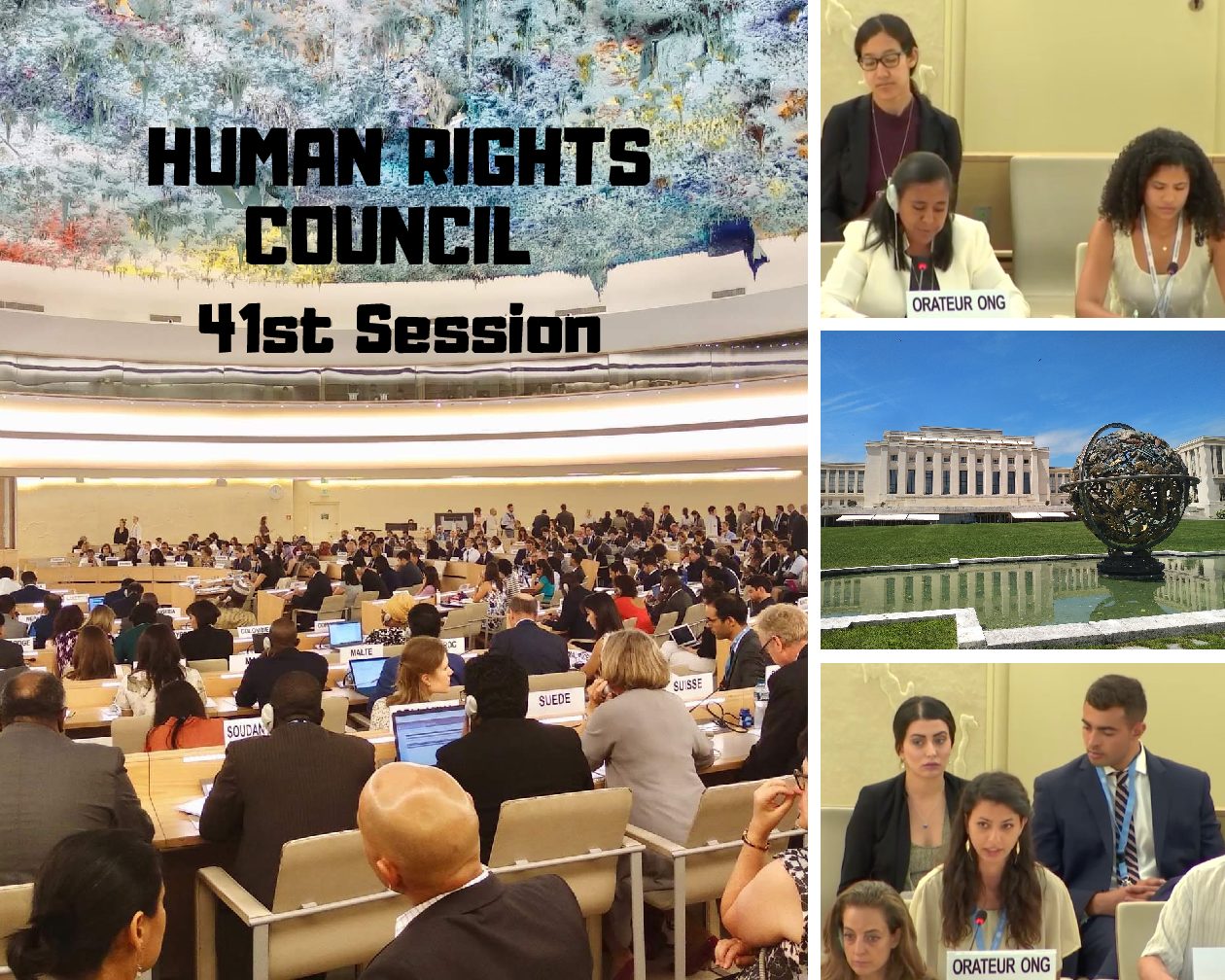
IIMA Participation to the 41st Session of the Human Rights Council in Geneva
From June 24 to July 12, 2019, Istituto Internazionale Maria Ausiliatrice (IIMA) Human Rights Office and VIDES International, contributed to the 41st Session of the UN Human Rights Council with five oral statements on migrants, education, violence against women, women and climate change and on the UPR outcomes of the Dominican Republic.
The Special Rapporteur on the rights of migrants highlighted in his report the situation of migrant girls and women. In our oral stamen we recommended that States provide complete gender-responsive and child-sensitive information on migration-related risks and on the legislative framework of the destination country. We asked States to develop effective and safe forms of family-based care as an alternative care response for the continued protection of unaccompanied girls, to recognize foreign qualifications and skills of migrants ensuring their access to education and to ensure rigorous training of public officials, social workers, and health care providers.
In order to promote the right to education, IIMA and VIDES stressed on the necessity of public-private partnerships and recommended that States utilize the Abidjan Guiding Principles as a standard to draft national policies on education, allocate a special funding for public education that is free, inclusive, of quality standard, and collaborate with private institutions and providers of education in designing and monitoring policies to achieve quality education, accountability, and transparency.
IIMA and VIDES, called upon Canada to undertake data collection and analysis on the causes of sexual violence against women at universities in order to identify effective measures to prevent these assaults. In addition, we recommended to the government of Canada to research the links between the consumption of sexually explicit content, and violence against women. Along with this we recommended that the State provide education and training for women regarding health and informed consent.
During the annual full-day discussion on the human rights of women, we called on States to protect the fundamental relation between indigenous women and the environmental biodiversity care. We called on States to continue to address the issue of climate change from a holistic human rights perspective that takes into account its implications for indigenous and peasant women, as well as to carry out concrete actions and policies.
IIMA and VIDES contributed as well to the Universal Periodic Review outcomes of the Dominican Republic calling on its Government to strengthen efforts to achieve an inclusive and quality education for all, to protect victims of discriminations, to promote mechanisms to reduce adolescent pregnancies, and to take urgent measures to eliminate femicide and other forms of violence against women.
To access Oral Statement videos and/or texts, click here

